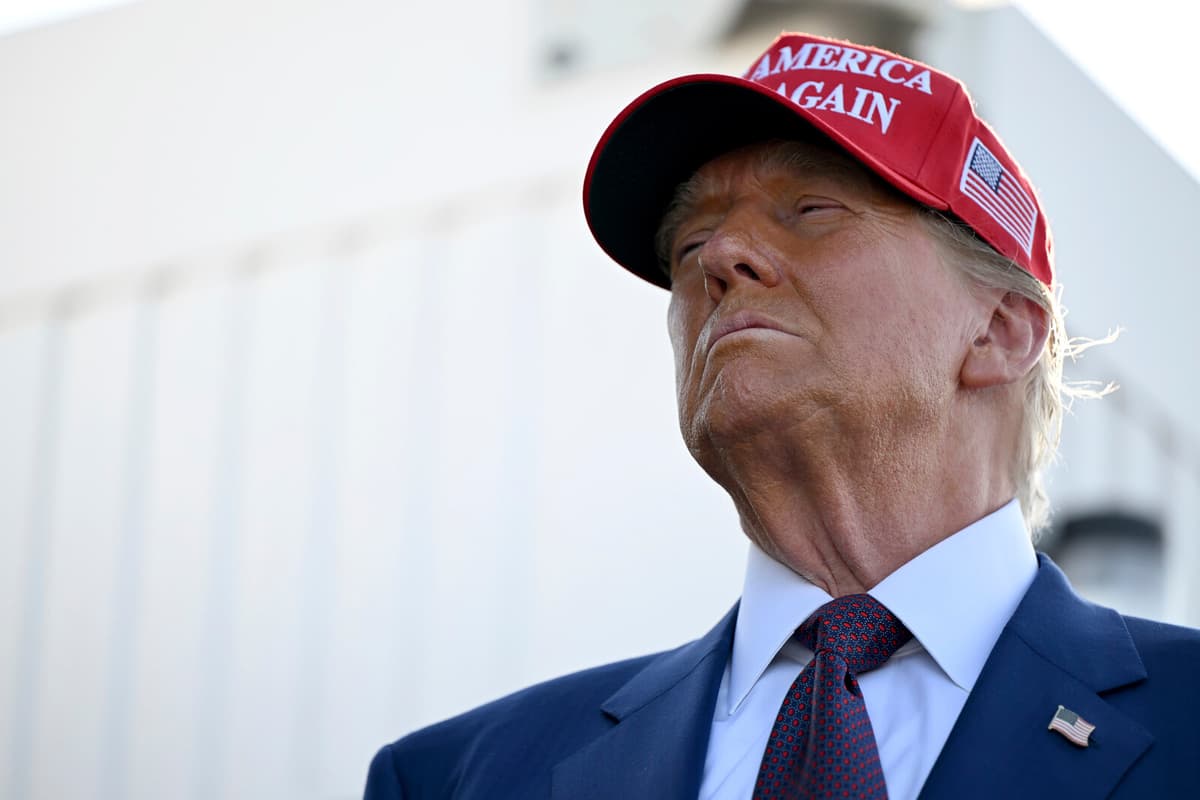The Republican Trump's incoming government has taken shape, and there is no doubt that the incoming president is surrounding himself with loyalists. People who, like Trump, can be assumed to be open to letting the goal justify the means if necessary.
With a majority in both the House of Representatives and the Senate, the conditions for Trump's Maga visions ("Make America Great Again") look good.
The question is whether there is anything that can stop Trump if he goes full speed ahead and runs over democratic and rule-of-law principles along the way?
CEO of the entire USA
Donald Trump's ambition is to be the CEO of the entire USA without any legal restrictions. Can he do it? Probably not. But the question is how far he can get, says Eric J Segall, professor of constitutional law.
Advertisement
A "paper barrier". That's what James Madison, one of the USA's so-called founding fathers, is said to have called the Constitution. What he meant was that it only works if those in power take it seriously. A statement that, according to Segall, is more relevant than ever.
If Trump goes far, far over the line, which I think is possible, it will be very turbulent times ahead, he says.
In the country that has long been a democratic model for the entire world, the incoming president has, among other things, promised more power to himself, purges of disloyal people in the administration, prosecution of antagonists, pardoning of rioters who stormed the Capitol, and deportation of millions of undocumented immigrants – possibly with the help of the military. Moreover, he is inciting against journalists and political opponents.
"Checks and balances"
The fact that the Supreme Court has given Trump immunity for actions in office has great significance for what he can achieve. It gives him enormous opportunities to act, says Erik Åsard, professor emeritus at Uppsala University and USA expert.
Advertisement
When it comes to Trump's opportunities to get his policy through, Åsard believes it will be easiest at the beginning of the term.
Some of his proposals are controversial and will be unpopular. Later on, public opinion may have shifted, and then it will be easier for hesitant Republicans to go against the party, he says.
The idea behind American democracy is the division of power between the president, Congress, and the Supreme Court. The Constitution, for example, prohibits the president from spending money that has not been allocated by Congress. But Eric J Segall does not believe that the system's "checks and balances" will stop Trump.
The chance that Congress will stand up to Trump is very small. And the Supreme Court has no money and no military. If Trump says "to hell with it", then that's what it will be, he says.
Advertisement
A bumpy road
Erik Åsard is more skeptical about Congress rolling over for Trump.
Even if Congress's effectiveness has been discussed for decades, it's not a given that it won't put up a fight. If a few senators fall away, it may be enough since decisions in the Senate are made by a simple majority. In any case, the nominations to ministerial posts have worried some Republican senators, he says.
Eric J Segall believes rather that it is the geographical conditions that could offer Trump resistance. The USA is large in terms of area and very polarized.
What can save America, if anything, is our geography and individual people with an ethical compass. Imagine 50 Spains and try to govern it in a dictatorial way. It's very complicated, he says.
Advertisement
At the same time, there is a fear of violence, not least if democratically inclined states or the population there resist.
What can happen is that the president, or for that matter a governor, uses police or military in ways that cause a lot of violence. It's possible that it will happen. We have a bumpy road ahead of us, says Eric J Segall.
Note: The USA's area is roughly 20 times larger than Spain, not 50.
The Federal Republic of the USA has 50 states. According to the Constitution, the principle of separation of powers applies, i.e., that the executive, legislative, and judicial branches should balance each other. In practice, this means that the president governs the USA, Congress writes the laws, and the Supreme Court ensures that presidential decisions and laws do not conflict with the Constitution.
Congress consists of the Senate and the House of Representatives. For a bill to pass, it must be adopted by a majority in both chambers.
The rules in the Senate give the smaller party the opportunity to delay and sometimes block the majority party's agenda through the so-called filibuster. Normally, 51 votes are required, or 50 votes plus the Vice President's tie-breaking vote, for a proposal to be adopted. If the filibuster is invoked, a "supermajority" of 60 votes is required to end the debate and put the proposal to a vote. At the same time, there are exceptions to the rule and ways to circumvent it.
The Supreme Court determines whether laws are compatible with the Constitution. It plays a significant political role when it takes a stand on various social issues. The candidates are nominated by the president and must be approved by the Senate. The Court has become increasingly conservative in recent years.
The individual states have relatively great autonomy, and the differences between them can be significant.
Source: The Swedish Institute of International Affairs and others






